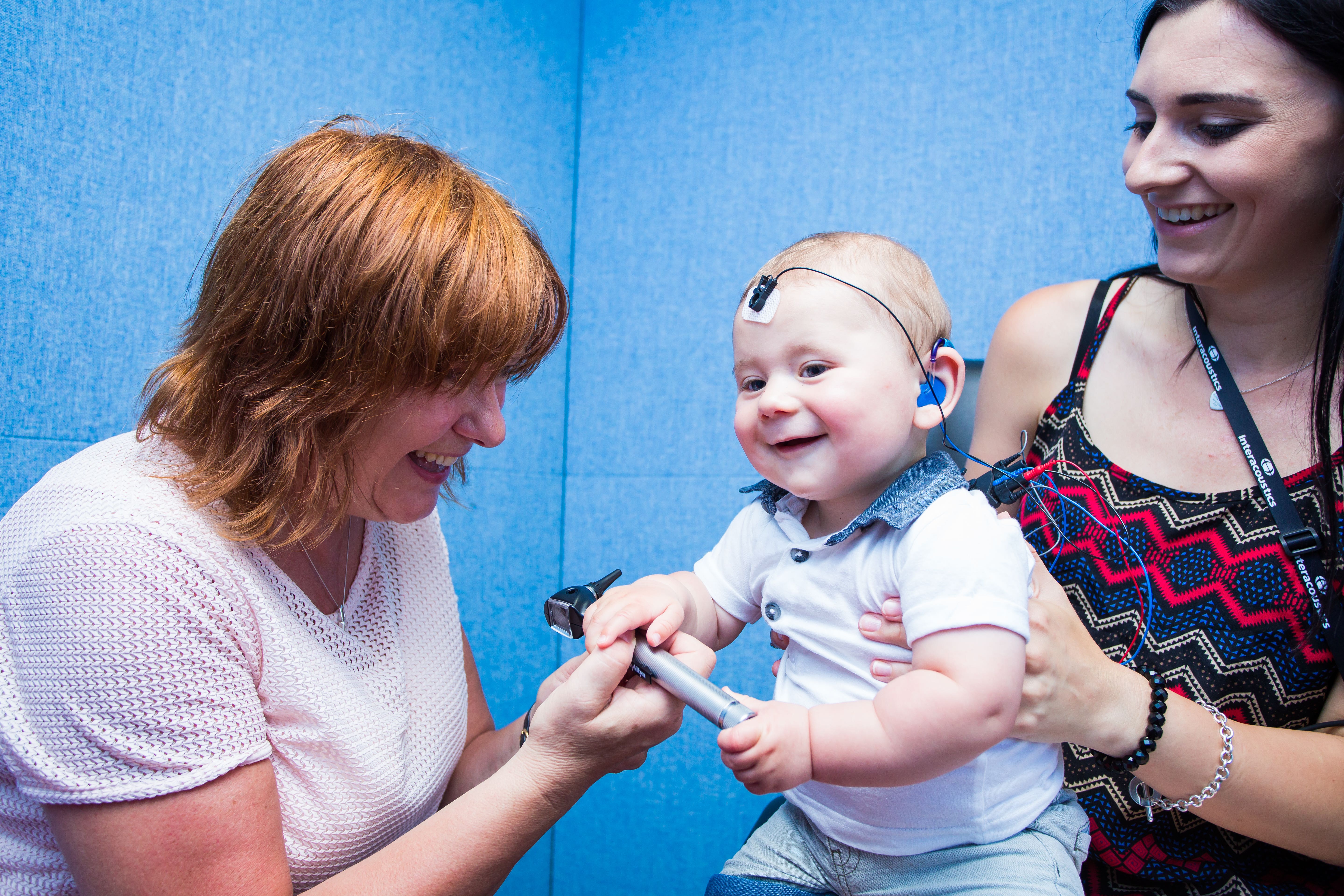New test could reassure parents their babies’ hearing aids are working – study
Researchers say there is no reliable way of testing how well babies are hearing through their hearing aids between the ages of three and seven months.

Your support helps us to tell the story
From reproductive rights to climate change to Big Tech, The Independent is on the ground when the story is developing. Whether it's investigating the financials of Elon Musk's pro-Trump PAC or producing our latest documentary, 'The A Word', which shines a light on the American women fighting for reproductive rights, we know how important it is to parse out the facts from the messaging.
At such a critical moment in US history, we need reporters on the ground. Your donation allows us to keep sending journalists to speak to both sides of the story.
The Independent is trusted by Americans across the entire political spectrum. And unlike many other quality news outlets, we choose not to lock Americans out of our reporting and analysis with paywalls. We believe quality journalism should be available to everyone, paid for by those who can afford it.
Your support makes all the difference.The parents of the one in a 1,000 newborn babies with hearing loss might soon have the reassurance that their children’s hearing aids are picking up speech thanks to a new test.
University of Manchester scientists travelled across the UK in a research van to assess The Cortical Auditory Evoked Potential test – or Cortical test – on 103 babies aged three to seven months.
In almost all cases, the test showed a positive response to speech played through the baby’s hearing aids when the child could hear the speech at a clear level.
According to the findings, the test showed a negative result when the baby could not hear the speech.
The project itself means so much to me as hearing loss in our family is hereditary, so this research will help massively not only for the future of infants with hearing loss but my son also
Lead author Anisa Visram, a lecturer at The University of Manchester, said: “One in a 1,000 babies are born with hearing loss and go on to have hearing aids fitted in the first months of life.
“The problem is, it’s not until they are around seven to nine months old at the earliest when we can use traditional tests of hearing.
“This can leave parents concerned about whether or not their babies are hearing the sounds the hearing aids are providing.
“However, our findings show the Cortical Auditory Evoked Potential test can help reassure parents about how babies are hearing through their hearing aids.
“This study would not have been possible without our research van which enabled us to get to parents across the country – a brilliant innovation.”
Marsha Johnson, a parent who took part in the study, said: “Having the research van come to our home has been hugely beneficial.
“When Logan was only a baby, having to disrupt his routine to attend the hospital was a nightmare. So having the ladies come to me and work around us was amazing.”
She added: “They had lots of toys available to entertain Logan too and if I felt he was getting tired we could take a break, they did everything to accommodate us.
“The project itself means so much to me as hearing loss in our family is hereditary, so this research will help massively not only for the future of infants with hearing loss but my son also.”
While the cortical test has been used in Australia, the Manchester team in collaboration with the Interacoustics Research Unit (Lyngby, Denmark) developed a new protocol which used different types of sound stimuli. They also showed the benefit of repeat testing to improve its sensitivity.
In the test, electrodes are placed on the scalp which then record activity in the brain to show whether the baby is perceiving the sound from their hearing aids.
All newborn babies have a hearing screening test when they are born, but if they fail the screening test, they are given another test by audiologists while they sleep, with electrodes being placed on their scalp.
If the follow up test – known as the ABR – shows a hearing loss, the babies are fitted with hearing aids, a process which can take up to three months.
Researchers say there is currently no reliable way of testing how well babies are hearing through their hearing aids between the ages of three and seven months.
Kevin Munro, professor of audiology at The University of Manchester and Manchester Biomedical Research Centre Hearing Health Theme lead, said: “The ability to treat and diagnose hearing loss from an early age is partly down to the research we carried out at Manchester over the last few decades.
“Now we think it’s likely audiologists will be able to test how well a baby is hearing through their hearing aid during that crucial period from between three and seven months where no testing is currently available.
“Not only does this give parents the reassurance their child’s hearing aid is working, but also in instances when the babies are still not hearing despite the hearing aids, it will set in motion the process of cochlear implantation more quickly.”
The study – which was carried out before the pandemic – is published in the journal Ear and Hearing and was funded by the National Institute for Health and care Research (NIHR) Research for Patient Benefit Programme, NIHR Manchester Biomedical Research Centre, the William Demant Foundation, the Marston Family Foundation, and the Owrid Foundation.